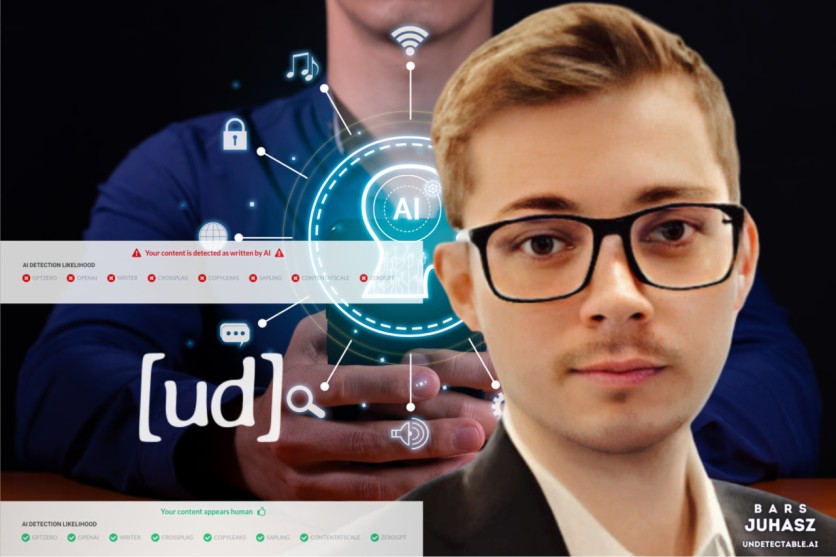
Is Artificial Intelligence a bubble? Or is it a world-changing technology that could alter society or the human race?
Already, we are seeing extravagant advances in fields like science, law, and content creation (just to name a few). Nearly every industry is affected by the advancement and adoption of artificial intelligence.
Undetectable AI has generated a lot of buzz for its software that allegedly humanizes AI-generated content. According to the documents shared with Tech Times, the tool uses machine learning trained on millions of data points, including human-written text. The text-humanizing program then replicates nuances and patterns of human written content. Unlike ChatGPT, the designers created it for a particular purpose, to improve and rewrite AI-text content, which gives it an advantage by being hyper-specialized.
Is there a dangerous side To Producing Realistic, High-Quality AI-generated Content?
One area where Artificial Intelligence has already excelled is in the field of content creation. According to some experts, AGI is rapidly reaching a point where it's becoming more difficult to tell the difference between AI-generated and human content.
Undetectable AI CEO Christian Perry asserts, "Low quality and spammy content is a risk and is exactly what search engines like Google hate."
CTO and lead developer for UndetectableAI Bars Juhasz also chimed in, explaining, "We often find there are certainly unique and granular details that one might even regard as informal and imperfect, present in human written content." Juhasz clarified, "Paradoxically, generative tools like ChatGPT write perfectly in the ways humans don't, but then make new inhuman mistakes."
Recent data suggests that humans write with a perfect blend of perfection and imperfection. Formality and informality combined with consciousness are traits that One might sum up as a unique and unquantifiable type of essence that factors in things such as sensory stimuli.
A study by Markowitz et al. demonstrated that AI-generated and ChatGPT written content was more manipulative, deceptive, and complex than human content typically written by humans. If ChatGPT's outputs are more manipulative, is it possible that humanizing AI content means making it less manipulative? The Markowitz data indicates that authors write human-authored text more honestly.
Is Undetectable AI Content helpful or harmful?
How it could be Helpful:
With the rise in popularity of tools like ChatGPT, AI is becoming the hottest trend in 2023. Supporters argue that the benefits of AI are apparent, particularly for menial and mundane tasks. There is no doubt that even in the early stages of the AI revolution, it could have the power to change the world for the better.
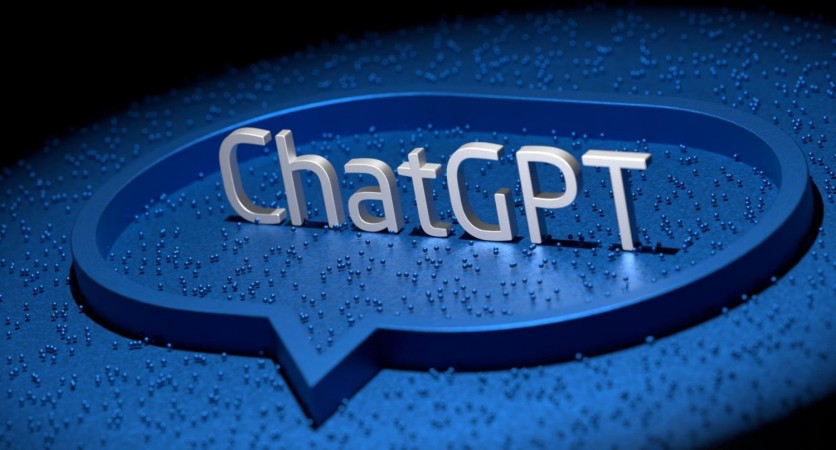
Content creation has been a polarizing subject when it comes to the integration of AI. It rocks the foundation of some of the pillars of our society, like education and art. How can anyone trust a term paper or a photograph when AI can create them?
Supporters of Artificial Intelligence, such as Mark Cuban, point out that it offers numerous benefits for individuals and businesses.
"These tools can reduce the strain put on human staff, saving businesses time and money by boosting productivity and allowing them to focus on scaling operations. Unlike other AI-generation tools, Undetectable AI can mimic several different writing styles. This enables businesses to engage effectively with target audiences and markets, creating a much more efficient stream of communication or advertising." says Bars Juhasz, CTO of Undetectable AI.
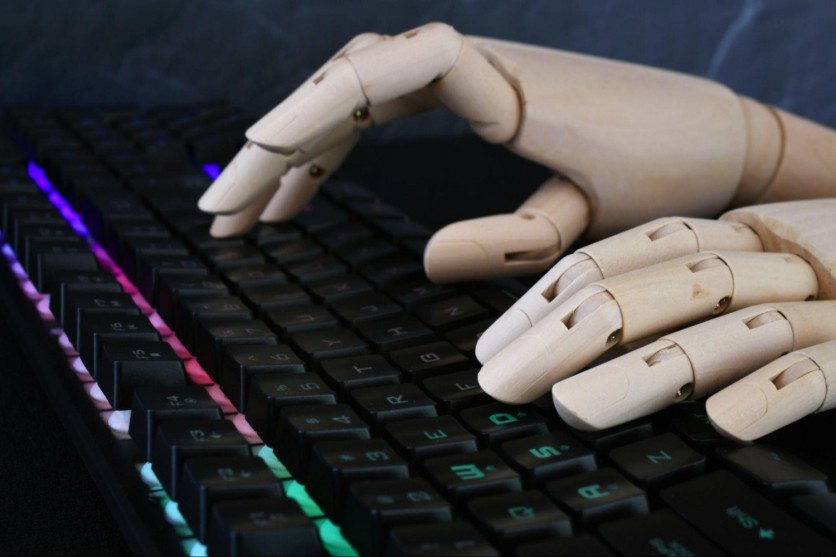
Some proponents of AI believe it also has the potential to democratize access to information and knowledge.
Technology allowing such a creative leap in quality can level the playing field for smaller businesses that could now put professional-grade content up for grabs without the professional-grade prices.
It's not just businesses that can benefit from indistinguishable content between human-made or AI-generated.
Despite the controversy over students using AI-content generators to do their schoolwork for them, the founders of Undetectable AI argue that it is still a valuable tool for education. CTO and co-founder Bars Juhasz explains that, unlike chatGPT, their software can emulate the nuances of human written content and that "The tech is capable of virtually bypassing both human and computational AI detection."
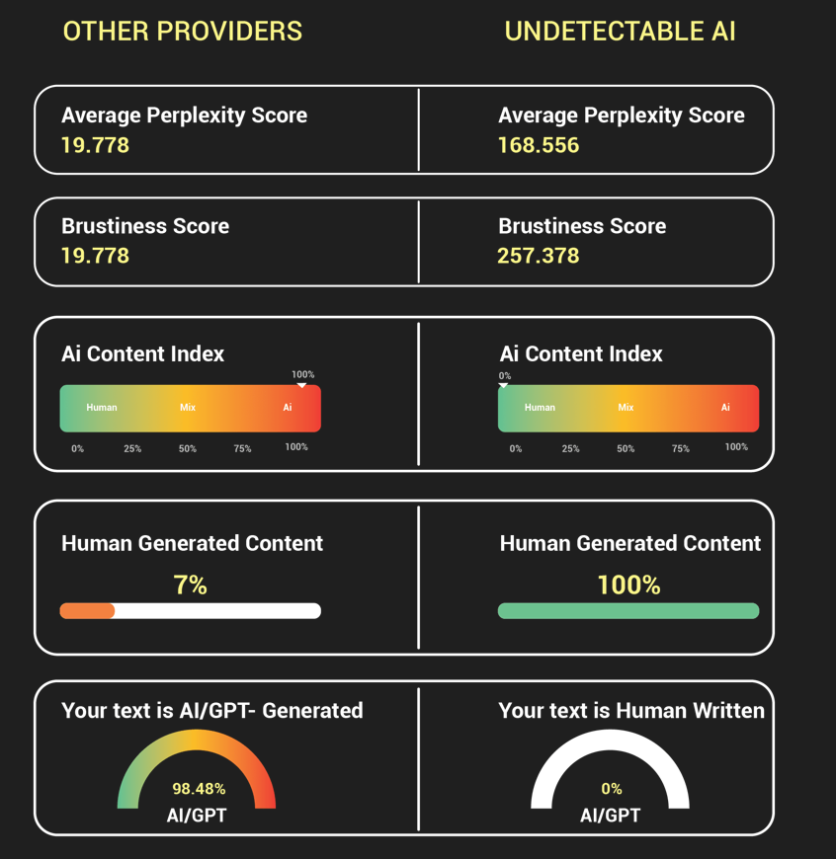
Juhasz also believes high-quality AI-generated or assisted content can be a learning tool and opportunity if used correctly.
"In a matter of seconds, Undetectable is capable of taking study materials, course guides, and research papers, and vastly improving the quality of the writing."
Bars Juhasz also believes that using AI creatively to assist in the educational process, if done correctly, is tremendously helpful.
"With ChatGPT, for instance, we heard about a teacher who has students use chatGPT to write an essay for the class and then asks them to identify the mistakes chatGPT made, effectively using the potential inaccuracies as a learning device and assessment tool."
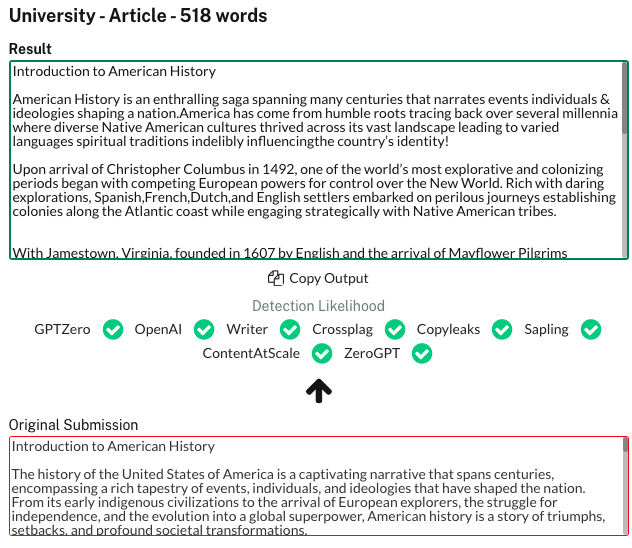
For educators, Undetectable.AI can be used to determine if students have submitted AI-generated work as their own (By using the sites built in AI detector). A simple AI detection scan can advise you of the likelihood that AI or a human created the content.
"Surprisingly, we do have quite a few teachers in academia using our software to check for AI detection," claims Christian Perry, CEO of Undetectable AI.
"We know the tech is powerful, and we are taking measures to prevent people from using our software maliciously." Perry continued.
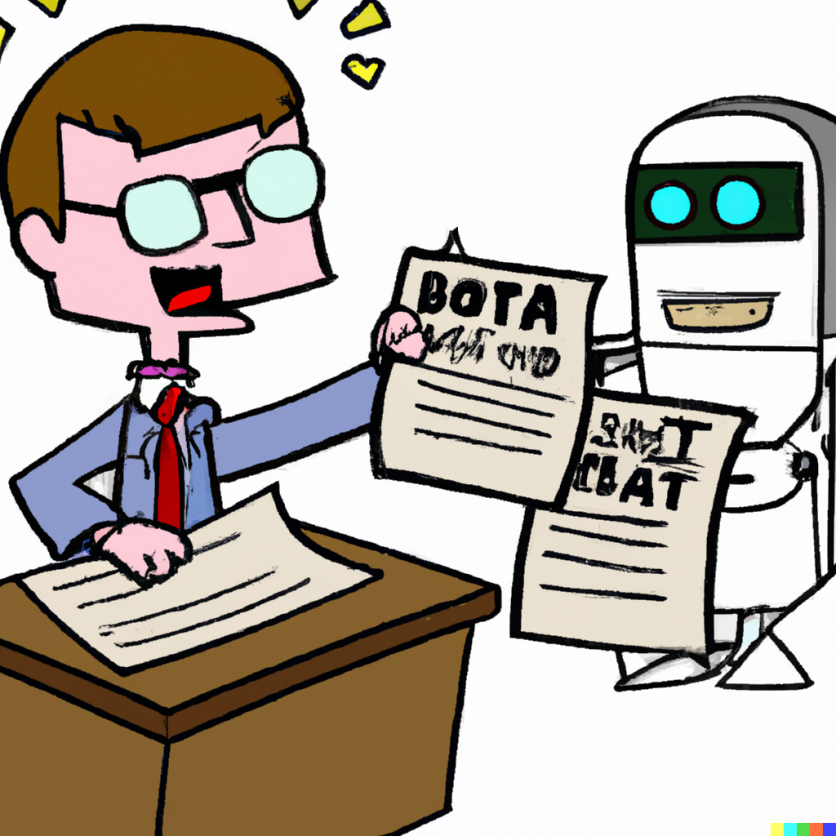
How Could Undetectable AI Content Be Harmful?
A significant concern regarding AI tools like Undetectable is their impact on human lives, not just students getting caught submitting AI-generated term papers.
One of the most significant impacts is the loss of human jobs, which some argue might directly affect the livelihood of content creators, writers, and data entry clerks.
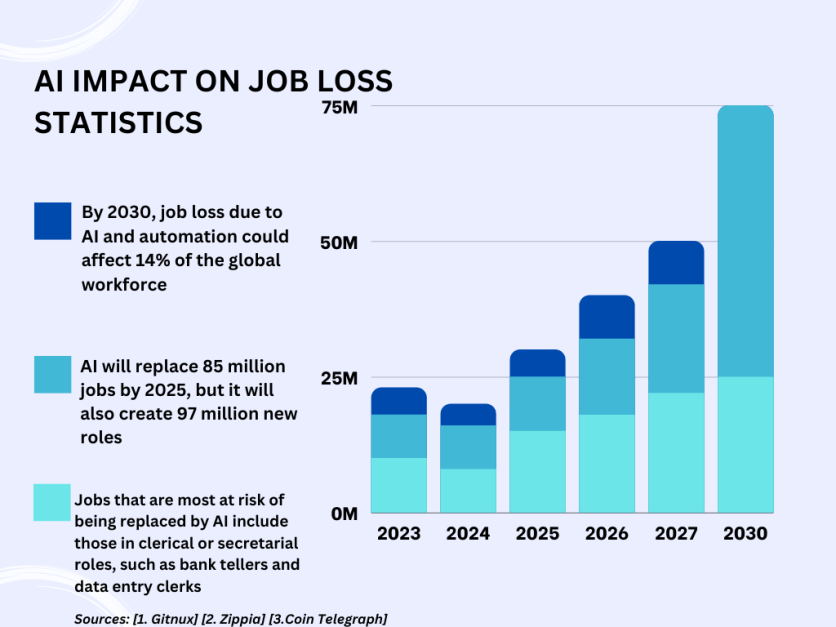
Why would companies continue to pay professional content creators when they could just as quickly pay for a subscription to an AI tool? According to Axios, in the wake of 85 million jobs experiencing displacement, artificial intelligence will create 97 million new jobs. Axios also reported that research indicates fear of job loss to robots is exaggerated.
One thing that is still in favor of content creators is that the average quality of typical AI writing has yet to surpass that of a human writer entirely. As good as some AI content may be, most of it still hasn't managed to capture nuances of human thought and expression.
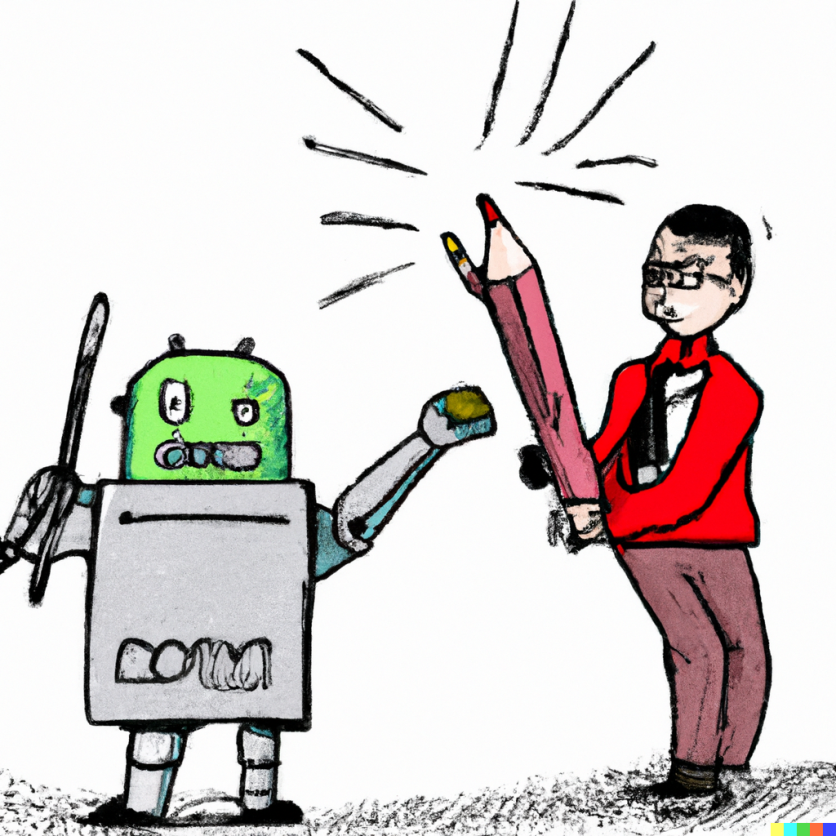
Another aspect is that sites like Google use AI content detectors and can penalize a site for strictly using AI-generated content to earn ad revenues.
PBS reports that a concerning part of AI-generated content is the potential for misusing and spreading misinformation.
We haven't yet explored the depths of machine learning or if AI can develop its own biases or narratives. If it can, then any content it generates would undoubtedly have a preconceived bias. There is enough misinformation making the rounds on social media right now; imagine if we have AI tools generating this content around the clock.
How We Can Use Proper Safeguards to Mitigate the Harm of AI
The world of AI is like the wild west: technology is advancing faster than our ability to create a proper framework. To make tools like Undetectable AI a net benefit to society, users must handle them responsibly and transparently. This approach might be the only way to ensure the accuracy and informativeness of the content they produce.
Eventually, some researchers or policymakers may need to develop guidelines and regulations for AI-generated content. There must be a way to use AI responsibly to foster the advancement and innovation that comes with it while also keeping the public safe from those with more malicious intent.
Implementing proper guidelines and regulations is critical to mitigating the harmful aspects of AI-generated content. Several prominent figures in the tech industry, such as Elon Musk and Geoffrey Hinton, have advocated for regulations on AI.
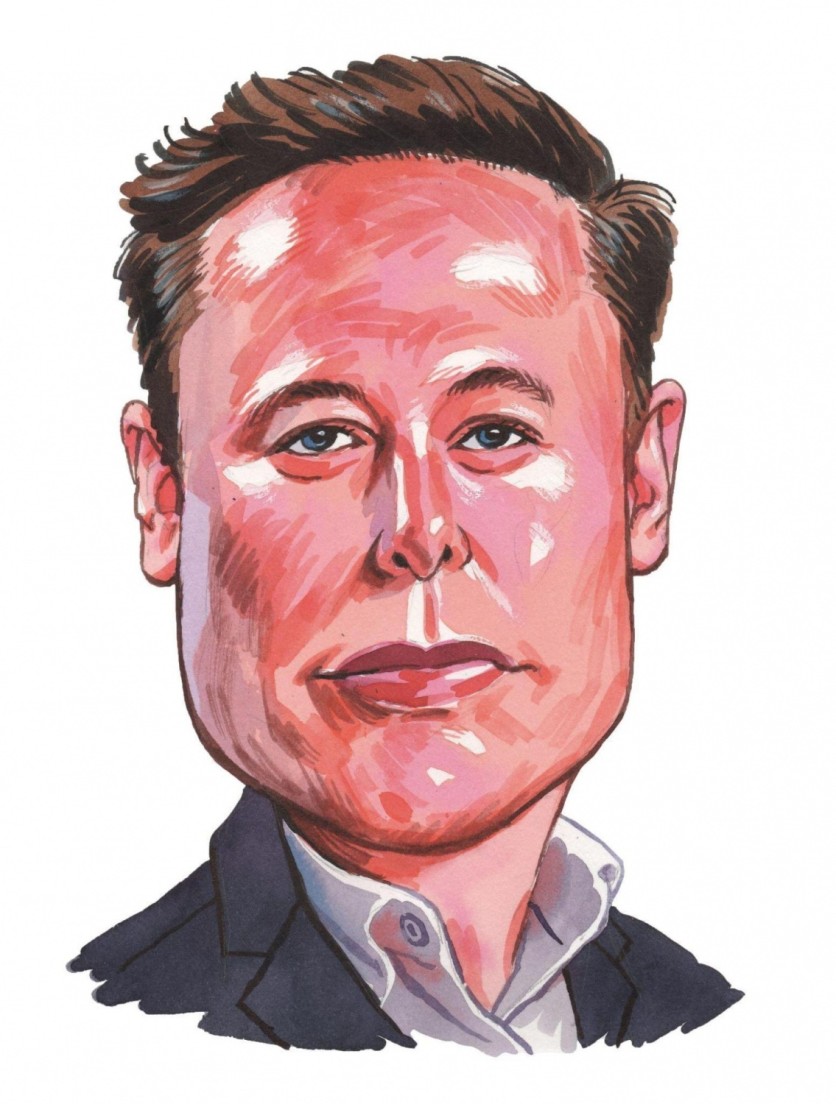
Elon Musk, CEO of SpaceX and Tesla and newly crowned 'King of Twitter,' stated that he thought AI could be dangerous in the past, even though his vehicles are AI-based vessels tasked with driving human lives around.
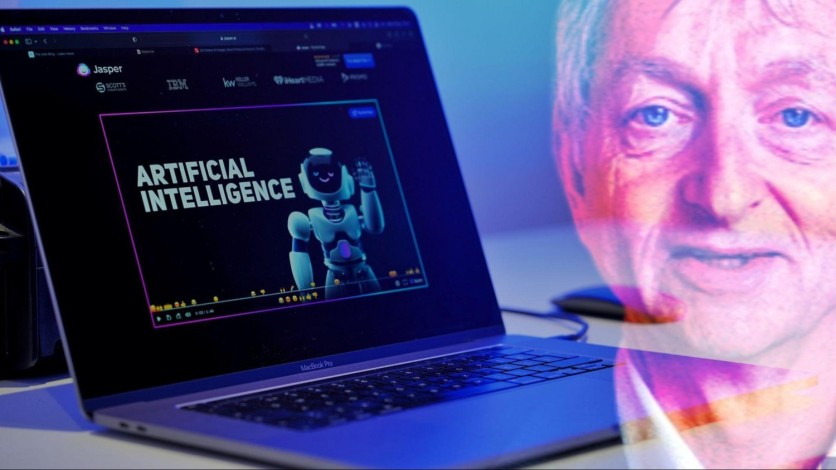
Musk and Hinton are adamant about regulatory measures. Altman also addressed congressional concerns regarding implementation. How could we regulate AI?
Regulations could include requiring AI-generated content to be labeled as such and implementing safeguards that prevent AI from creating harmful or misleading content. Although implementing regulatory mandates is generally agreed upon, there still needs to be more disagreement about the specific solution for dealing with AI.
Undetectable AI CEO Christian Perry stands firm that he and his entire company are committed to fostering the positive and ethical implementation of AI and are supportive of potential regulatory efforts:
"At Undetectable AI, we're excited about AI's potential and acknowledge the responsibilities it entails. We are committed to the ethical use and completely support balanced regulations that protect society while fostering innovation. We're eager to collaborate with policymakers and stakeholders to contribute to developing effective and sustainable AI regulations."
Is Humanized AI Helpful or Harmful?
As the old saying goes,' Maybe the truth is in the eye of the beholder (or, in some cases, the beholder's opinion.)
The evidence does seem clear that the benefits of tools like Undetectable AI could outnumber the potential risks, one example being that AI-assisted content writing and editing software may supercharge the productivity of professional authors and writers rather than replacing them.
Multiple experts have pointed out that people can rein in and control artificial intelligence with the proper safeguards. At the same time, it also provides a valuable output of high-quality content.
We should be mindful of preventing any collateral damage in the form of job losses and potential misuse. Yet, presently there is an apparent net-positive gain for society so long as the proper efforts are maintained to ensure responsible use.
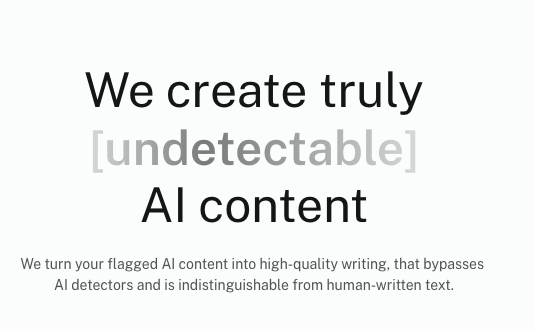
Undetectable AI, and other AI tools, can improve our society and foster innovation. Gold Penguin reported that using AI tools to bypass AI detection could be necessary to avoid being falsely accused of using AI-generated content due to the erroneous detection methods and inaccuracy of detection tools.
By democratizing superior creative capabilities, AI technology has the potential to be a truly transformative tool for the future of content creation. While bypassing AI detection sounds like it could be a concerning issue if misused (in the context of students using it to cheat and avoid detection or by being used to spread misinformation.)
Industries such as marketing, SEO, education, and copywriting may tremendously benefit by enmeshing their human touch and expertise with the digital transformation made possible by the current advancements in artificial intelligence.
ⓒ 2025 TECHTIMES.com All rights reserved. Do not reproduce without permission.




